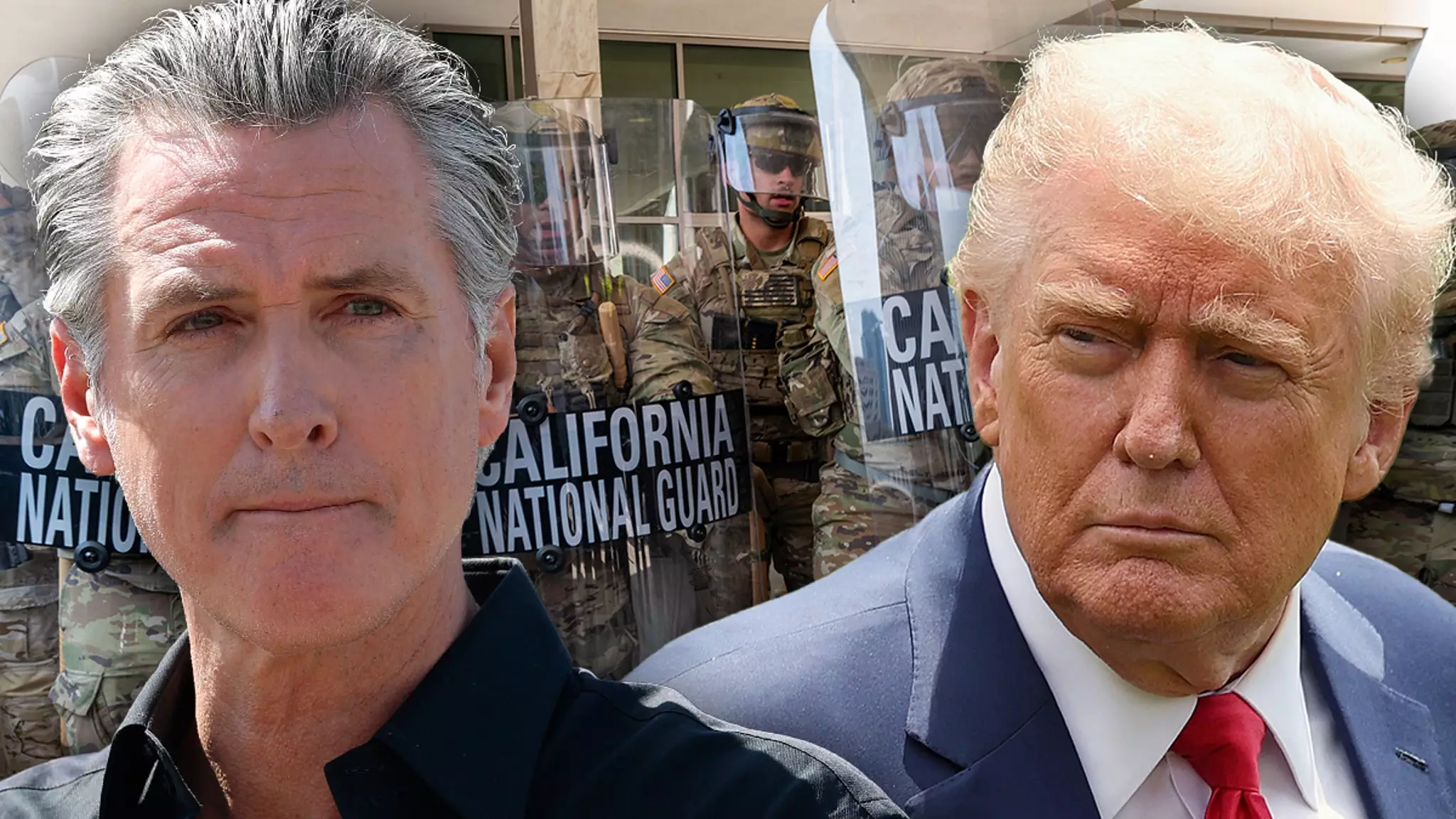The latest clash between California Governor Gavin Newsom and President Donald Trump illustrates not only a personal conflict but a larger narrative of state versus federal authority in contemporary America. Newsom’s legal challenge to Trump’s deployment of the National Guard to Los Angeles highlights the profound complexities surrounding governance, civil rights, and the interpretation of constitutional law. This is more than a dispute over military jurisdiction; it’s a reflection of the heightened tensions that exist as the country grapples with divisive issues, particularly immigration.
Unpacking the Lawsuit
Newsom’s assertion that Trump’s actions are illegal rests on a cornerstone of state sovereignty. In the lawsuit, which includes both Trump and high-ranking military officials, Newsom contends that federal deployment of the National Guard without state consent is unconstitutional. According to Newsom, the President’s actions were not only unilateral but also a significant overreach of executive power. It is claimed that the statute invoked by Trump explicitly demands state approval for such military action, reinforcing the importance of local governance in national discussions.
For many, this lawsuit is not merely a technical legal issue but a vital stand for state rights. The President’s decision to send the National Guard amidst protests connected to federal immigration policies has been branded as a scare tactic. Newsom has distanced himself from this narrative, providing a view that the protests were actually managed well by local authorities and that the federal escalation was unnecessary.
The Broader Implications
This legal battle extends beyond individual personalities and highlights a broader crisis of trust in governmental exercising of power. It raises critical questions about where authority should lie in scenarios where local governance demands autonomy against a backdrop of increasing federal intervention. Critics of Trump often argue that his administration thrives on creating chaos and division, which Newsom argues could incite civil unrest. By branding Trump as a “stone cold liar,” as Newsom did in a recent statement, it is evident that the rhetoric in this conflict is saturated with deep-seated animosity, reflecting the polarized political climate of today.
Moreover, the issue of immigration remains a touchstone for many Americans; the National Guard’s involvement in managing protests related to immigration raids serves to deepen the divides in public sentiment. Newsom’s lawsuit serves as a rallying point for those feeling disenfranchised by federal immigration policy and aligns with a resistance movement that seeks to reclaim authority at the state level.
The Path Forward
As this story unfolds, it’s important to recognize the potential ramifications not only for California’s governance but for the entire nation. The outcome of this lawsuit could set a significant precedent regarding the powers of state and federal government in America. As citizens watch this legal showdown between Gavin Newsom and President Trump, it navigates the intersectionality of law, personal ethos, and the ongoing debate over national identity. The implications of this case are far-reaching and could energize a national discourse on the legitimacy and limits of executive power in the face of localized governance.

